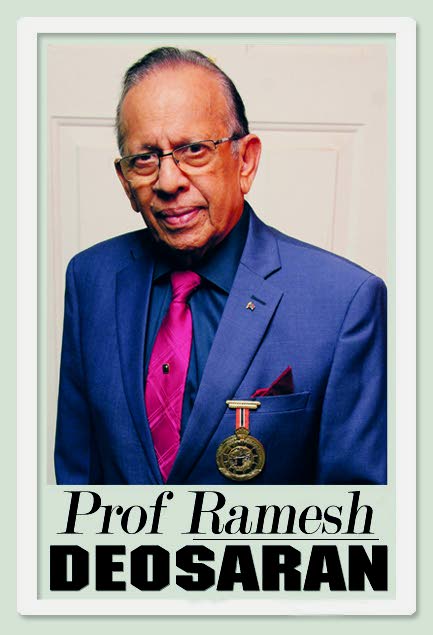Politics of the service commissions

It sounded like a firecracker announcement coming from PM Dr Keith Rowley, and made in a curious place – the PNM’s Family and Sports Day. up Toco.
It caused a big noise, naturally, given his promise to “abolish our service commissions” and, as reported, replacing them with “one tribunal.”
Social media speculated. Was it “a distraction” away from crime and the “Brent Thomas affair?” UNC faithful said it was to “neutralise” news about the party’s 34th anniversary and new headquarters celebrations.
Whatever, a flurry of citizens’ comments briskly appeared after Dr Rowley’s Toco announcement. This was expected. The deepened principles governing our service commissions – Public, Teaching, Police, Judicial and Legal – are held quite sacred by citizens. (The Statutory Services Authority Commission a special case).
Briefly, the constitutional principles of fairness, independence and freedom from political interference strongly resonate in the minds of citizens. More precisely, one court judgment after another has feverishly reinforced these principles when politically or bureaucratically attacked.
These principles were reflected in the much-quoted statement by the Privy Council: “In respect of each of these autonomous commissions, the Constitution contains provisions to secure its independence from both the executive and the legislature.” (Lord Diplock, in Endell Thomas vs AG, 1982) It is mainly these constitutional provisions, protected by special majority, Dr Rowley’s government would have to overcome.
Even Dr Ralph Gonsalves, as a UWI lecturer in 1986, stated in his Working Paper: “Public Service Commission is a post WWII innovation and was a central plank in the British programme for Civil Service 'impartiality and integrity' as countries advanced towards self-government.”
Towards the end of his Toco speech, Dr Rowley said: “All our public services are underperforming. These so-called independent service commissions that are hamstringing this country, there are certain things that will never change, will never improve as long as basic management tenets are not being met.”
Now, as sacred as these service commission “principles” are, it is really their practises and performance that must matter in the public interest. Dr Rowley claimed they are “under-performing, hamstringing the country.” What he hasn’t done at Toco and should have was to illustrate by evidence-based examples, and how his alternative proposal of a “tribunal” would help improve public service performance and accountability. While I do sympathise with some of Dr Rowley’s concerns, there is a lot of work to do before proposing “abolishment.”
Many a PM and ministers have complained about delays in filling public vacancies. Service commissions explained their staff and resource shortages. Have we also considered the extent to which ministerial-favoured "contract employment" has subverted the public service? Has government considered the extent to which “special purpose companies” have escaped public service regulations, freeing the way for political patronage and “under-performance?”
Dr Rowley’s “one tribunal” alternative so far remains troubling in terms of who appoints, political appointees, interference and impartiality. Given his view that these commissions do not have “proper management,” what kind of management structure would his government provide for the “tribunal?” And how far from “political interference” would it be? He has to explain more.
The challenges facing the Teaching and Public Service Commissions are, to some extent, different from those facing the JLSC and Police Service Commission. As such, a “blanket abolishment” will be misguided.
Part of the reasons for establishing these commissions at the London Independence discussions were Opposition fears of discrimination and political interference, Frankly, as frequently mentioned, such fears still exist, especially given the number of constitutional motions filed against government agencies and the commissions themselves.
The late Senior Counsel Kenneth Lalla listed a number of judgments which protect the independence of the service commissions. Lalla, in his very informative book, The Public Service and Service Commissions, strongly argued against abolishing them. The 1974 Wooding Commission, especially its minority reports, noted the delicate connection between our ethnic diversity and public institutions.
Dr Rowley publicly said he doesn’t expect the Opposition to support his service commission proposal. The Opposition has already publicly said it will not. Strange. Both parties created the convoluted PolSC, then criticised it but refused to reform it.
So we may ask, what kind of democracy and parliament do we have? This serious matter of service commissions should be properly dealt with in parliament. Why is our political system not working as it should?

Comments
"Politics of the service commissions"